As I joined the service group ‘Hope For Kids’ this year, I decided to do my CAS project based on raising cancer awareness within the people both in the school community and outside the community because Hope For Kids is designed to help out the kids who are diagnosed with cancer. I made posters about cancer awareness as cancer has become a major issue in the society these days due to not treating it at the right time or delay in identify the illness. In my CAS project I talk about cancers in general for all age groups despite talking about one specific type or limiting it to just one age group. I talked to Ms.Tanuja (the service supervisor) about the details such as what to include and what information would be appropriate to include in the posters. Using Canva, I created a poster in three languages including English, Sinhala and Tamil in order to make everyone understand the content. I used google translate to translate the English poster to Sinhala and Tamil. In the poster, I included some numbers about how many people are affected and how many types of cancers there are in order to give a sense to people of the importance of getting medication at the right time. I also included the symptoms and the most common causes of cancer while putting up a mobile number of a cancer raising awareness centre in Colombo, asking people to go check out if they find out hat they have any of the symptoms. I printed 5 copies from each page of the posters and distributes them to different organisations including school. I displayed 2 copies of the posters in the school notice board. I talked with managers of the some organisations including a filling station, a clothing store close to the school (cool planet) and a local company to display the other 3 posters and they agreed to display my posters on their notice boards.
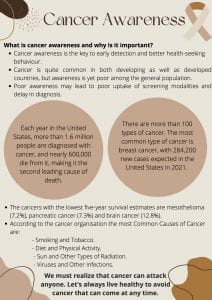

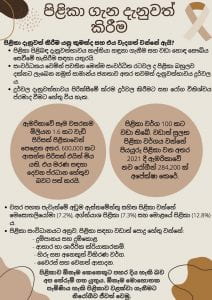
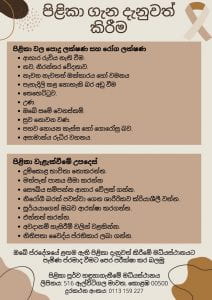
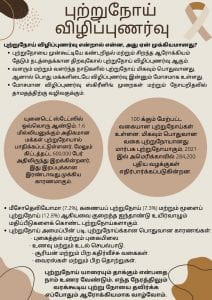
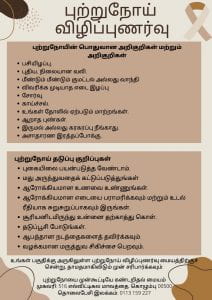
These are the posters that I created in the three languages: English, Sinhala and Tamil.

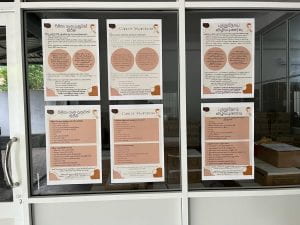

These photographs shows how the posters were displayed in the organisations.
Learning outcome 1: Identify own strengths and develop areas for growth – The student is able to see themselves as individuals with various abilities and skills, some more developed than others.
Learning outcome 3: Demonstrate how to initiate and plan a CAS experience – The student is able to articulate the CAS stages including investigation, preparation, action, reflection (ongoing) and demonstration, moving from conceiving an idea to carrying out a plan for a CAS experience or series of CAS experiences. The student shows initiative by launching a new idea or process.
Learning outcome 4: Show commitment to and perseverance in CAS experiences – The student demonstrates regular involvement and active engagement with CAS experiences and CAS project.
Learning outcome 6: Demonstrate engagement with issues of global significance – The student recognizes the global implications of local issues. The student is able to identify global issues in the local or national community. The student shows awareness of issues of global importance and takes concrete and appropriate actions in response to them either locally, nationally or internationally.The student gets involved in CAS projects addressing global issues in a local, national or international context.
Learning outcome 7: Recognize and consider the ethics of choices and actions – The student shows awareness of the potential and varied consequences of choices and actions in planning and carrying out CAS experiences.